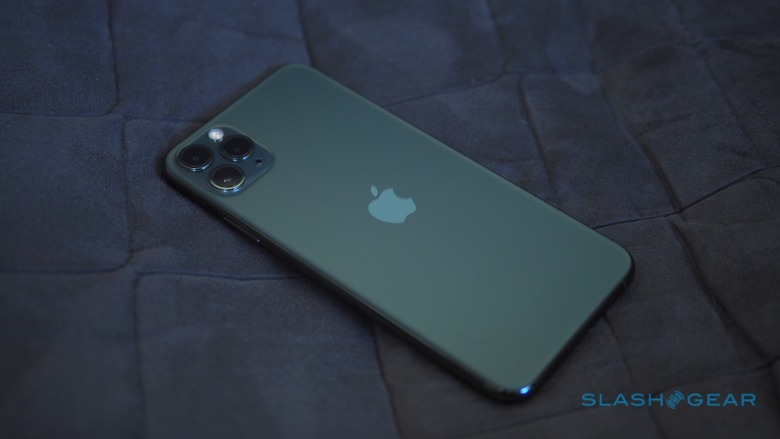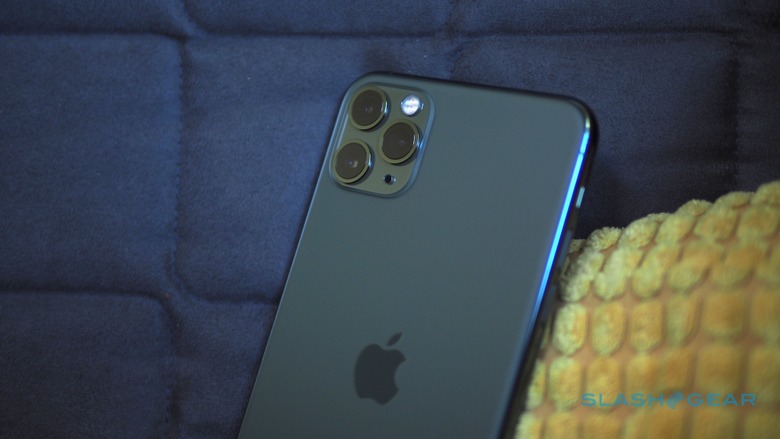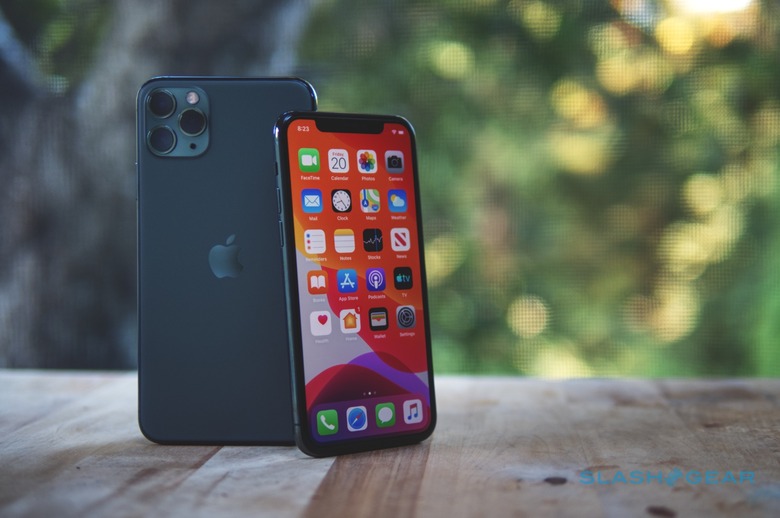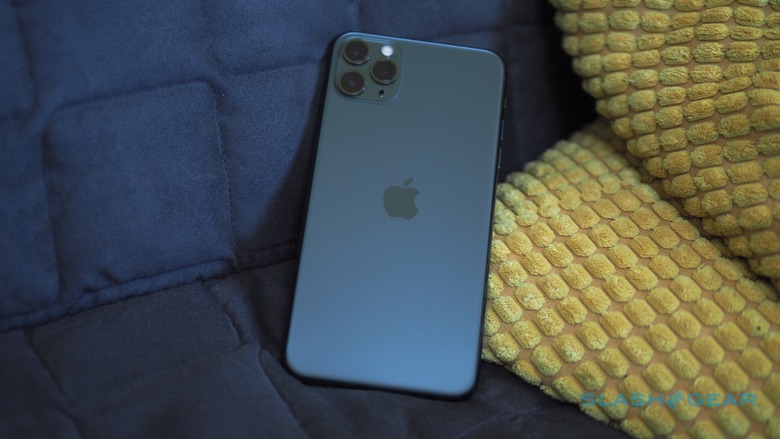The Midnight Green iPhone 11 Pro Is Living Up To Expectations
I'll admit it, I was a little bit obsessed with the Midnight Green iPhone 11 Pro when Apple announced it last week. It still feels like an atypical color for Apple to pick, not quite as serious as Space Gray or Silver, but neither as colorful as some of the iPhone 11's finishes. Of course, it's not only the color of the case that sticks out.
My first impressions of the iPhone 11 Pro from Apple's big launch have held up as I've used it this week – we'll have a full review very soon – and while I know Apple's design this time around has been controversial, that's also grown on me. Personally, the most welcome change, and the one which has been most positively received by everyone I've shown the new iPhone to, is the frosted finish to the rear.

Is 2019 the year of frosted phones? Perhaps, and that's no bad thing. Compared to the slippery glass on the back of the iPhone XS Max I was using before, the iPhone 11 Pro Max feels more stable in my hands. The texture isn't enough to make it catch on the pocket of my jeans as I put it in or pull it out, nor will it pick up fingerprints, but it's enough that I don't worry quite so much about the phone sliding out if I lean back on the sofa.
I also think the Midnight Green finish works well with the triple camera array. Apple's triangular cluster of lenses is vaguely insectile, but combined with the grayish-green finish and the fact that the slightly raised bump is shiny not frosted, the overall look has a somewhat retro-military chic to it. Apple's camera cluster has another, more practical advantage, too: it helps keep the lenses lined up in the camera app.
That's something you notice when you're switching between lenses – ultra wide, wide, and telephoto – and particularly when you're trying to smoothly zoom in video. Or, more accurately, it's something you don't notice, unlike with some other phones. There are more than a handful of multi-camera smartphones out there which, while the individual quality of each sensor may be high, struggle to operate together in a cohesive, lined-up way.

At worst, it means horizon lines jumping around as you switch between the cameras, or people who were at one point in the center of the frame suddenly being offset. There's absolutely none of that with the iPhone 11 Pro that I've seen, the switching is effectively seamless. Apple even shows off that talent in an almost offhand way, adding shadowy previews of the next-widest lens you're currently using on the sides of the camera app. You'd never know that it was digitally blending from two sensors in order to do it.
As for camera quality, I'm already impressed by Night Mode. Low-light performance was somewhere my iPhone XS Max always lagged compared to rivals, but Apple's combination of sensors and software works impressively well. I also appreciate how naturally the camera app surfaces Night Mode, turning it on automatically if the scene could use it, rather than you needing to swipe to a different mode. The only downsides so far are that Night Mode won't work with the ultra wide camera, only the wide and telephoto, and that you can't turn it on manually (though you can turn it off).
Elsewhere, Apple's big battery life claims seem to be holding water. The company promises up to four hours more from the iPhone 11 Pro compared to the iPhone XS, and up to five hours more from the iPhone 11 Pro Max versus the iPhone XS Max. Some of that is down to just making a slightly thicker, heavier phone, dropping 3D Touch's extra display layers, and then physically squeezing in a larger battery into the space that's left.

You probably won't notice the change in dimensions unless you have both versions side by side, I suspect, but I'm missing 3D Touch more than I thought I would. It's taking some muscle-memory retraining to press-and-hold rather than press-with-force to triage email notifications on the lock screen, which is something I do a lot, and that whole process feels like it takes just a little bit longer now as I wait for iOS to decide, yes, Chris wants the context menu.
The majority of the battery improvement, though, is down to software and the new Apple A13 Bionic chipset. Obviously everybody's usage of a phone is different, but to give an idea of how the iPhone 11 Pro Max has held up, yesterday I took it off the charger before 5am to head to the airport, used it for music, photography, email, browsing, Google Maps, and a lot of messaging all day, and by the time I got back to a Lightning cable at 7pm I still had 19-percent battery left.
That's a solid 14 hours with power to spare, and certainly more I'd have expected to get from the iPhone XS Max in the same sort of circumstances.

If there's been a negative part of my experience so far, that'll be iOS 13's bugginess. Apps that sometimes lag or crash, or won't rotate properly and need to be force-closed; the camera sometimes deciding simply not to give a preview of the scene (even though it's apparently still taking photos). I'm not surprised Apple has pulled forward its iOS 13.1 release to next Tuesday, and if you're sticking with your old iPhone I'd really recommend holding off upgrading until then if you haven't already.
We'll have a full iPhone 11 Pro review very soon – and one of the iPhone 11, which in many ways is even more interesting than its more expensive cousins.
